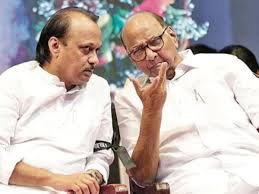N. Biren Singh is calling for a review of historical refugee settlement records, that date back to before Manipur became a full state. He is raising questions about the legal status of the refugees, and the long term effects that the settlements have had on the state.
BY PC Bureau
April 2, 2025
Former Chief Minister N. Biren Singh has publicly called for a comprehensive investigation into what he describes as a “silent demographic shift” in Manipur, directly attributing it to decades-old refugee settlements that he claims were facilitated with the knowledge of past administrations. Singh’s statements, delivered in a series of public addresses and press releases, have reignited a highly sensitive debate, particularly amidst the current ethnic tensions plaguing the state.
ALSO READ: ‘Big Bucks No Performance’: Rishabh Pant faces the heat after another failure
“We cannot afford to ignore the historical facts that have shaped our present reality,” Singh declared, referencing official records he asserts document the settlement of thousands of refugees in Manipur even before it attained full statehood. “It is a matter of documented history that even before we became a full-fledged state, thousands of refugees were settled here with the knowledge of the authorities at the time.”
Singh specifically pointed to records from the late 1960s and early 1970s, citing the presence of over 1,500 refugee families who received rehabilitation assistance. “As early as the late 1960s and early 70s, documents reveal the presence of over 1,500 families who had crossed over and were provided assistance for rehabilitation,” he stated.
ALSO READ: Kohur Blasts “Selective” AFSPA as a Tool of Suppression
He further emphasized the existence of multiple letters from various sources, including Members of Parliament, government departments, and refugee associations, corroborating the presence of a significant refugee population in Manipur. “This wasn’t some isolated event. There were multiple letters from MPs, government departments, and refugee associations, all pointing to the presence of a large number of refugees in Manipur,” Singh asserted.
Is Manipur a Dumping Ground for Refugees from the Very Beginning?
Amid all the political noise and distractions that often cloud our public discourse, we must not lose sight of the core issue, one that has been quietly shaping Manipur’s reality for decades. It’s hard not to feel… pic.twitter.com/egcKGEw4zo
— N. Biren Singh (@NBirenSingh) April 2, 2025
A key piece of evidence highlighted by the former Chief Minister is a 1967 letter from then-Member of Parliament Paokai Haokip to the Minister of State for Home Affairs, K.C. Pant. “One such letter, written by Shri Paokai Haokip, then Member of Parliament from Manipur, addressed to Shri K.C. Pant, Minister of State for Home Affairs, explicitly acknowledged the presence of over 1,500 refugee families who had already been settled in Manipur by 1967,” Singh quoted.
Singh raised a series of critical questions regarding the long-term impact of these settlements. “What happened to those families? How were they integrated? How many generations have grown since then? These questions have never been fully addressed in the public domain,” he stated. “Instead, the issue has remained largely unspoken, even as the demographic structure of the state evolved quietly over the years.”
He explicitly questioned the legal status of these refugees and their descendants, demanding clarity on their potential inclusion in electoral rolls and access to benefits meant for indigenous communities. “It’s important to ask whether there were legal mechanisms in place to ensure these individuals remained in refugee status. Were they eventually granted full rights? Were they added to electoral rolls? Were they extended benefits meant for indigenous communities? These are not small matters, they touch the core of our identity, our social balance, and the direction we’re heading in as a society,” Singh emphasized.
He also expressed concern over the backlash faced by those who raise these concerns. “What’s even more disheartening is the backlash faced by anyone who dares to raise these legitimate concerns. The moment the issue is mentioned, labels are quickly thrown around,” he said.
Singh stressed the urgency of addressing this historical issue, calling for a thorough investigation and a balanced approach. “Silence is no longer an option. We cannot afford to watch quietly as a historical issue with far-reaching consequences continues to shape our present and our future. It is time to revisit this chapter and not to assign blame, but to understand what happened, reflect on its implications, and chart a fair and balanced path forward,” he insisted.
His statements come at a time of heightened ethnic tensions in Manipur, with the issue of illegal immigration being a central point of contention. The former Chief Minister’s intervention has significantly escalated the debate, prompting calls for greater transparency and accountability from both the state and central governments. Singh’s demand for a comprehensive probe is expected to have far-reaching implications for Manipur’s political and social landscape.












